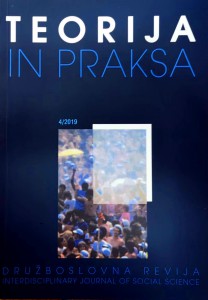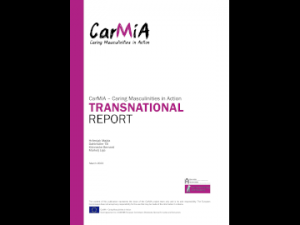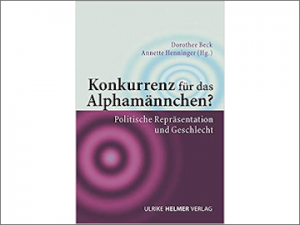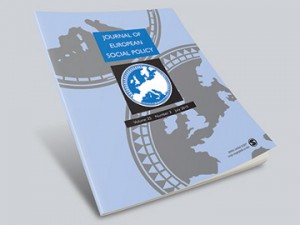Teorija in praksa: Special thematic section Masculinities and care
23. 1. 2020 | Gender

 We announce the publishing of special thematic section Masculinities and care: Men’s experiences in formal and informal care work (Teorija in praksa, vol. LVI, no. 4) edited by Majda Hrženjak and Elli Scambor. This collection of 11 original scientific articles contributes to the expanding research of masculinity and care by presenting evidence of men’s active participation in a range of types, locations and geographies of care. It brings further analysis of the complexity of men’s inclusion in care work in terms of both the social regulation of gender as well as the structural factors like generation, location, labour markets, welfare systems, migration, organisational cultures and dominant norms of family and care.
We announce the publishing of special thematic section Masculinities and care: Men’s experiences in formal and informal care work (Teorija in praksa, vol. LVI, no. 4) edited by Majda Hrženjak and Elli Scambor. This collection of 11 original scientific articles contributes to the expanding research of masculinity and care by presenting evidence of men’s active participation in a range of types, locations and geographies of care. It brings further analysis of the complexity of men’s inclusion in care work in terms of both the social regulation of gender as well as the structural factors like generation, location, labour markets, welfare systems, migration, organisational cultures and dominant norms of family and care.
Iztok Šori, Živa Humer and Mojca Frelih in their articles discuss experiences of men confronted with the situation of being a primary carer in informal family care as a sole father or a carer for a partner and parents with dementia. On the level of discourses, ambivalent attitudes of society can be observed towards contemporary fatherhood: official policy discourse stands for gender equality through equality in sharing parental care work between parents; fathers’ rights groups call for an essentialist and traditional understanding of motherhood and fatherhood; on the level of institutions such as courts and centres of social work, men are still perceived and treated as a secondary parent and can face discrimination in obtaining custody or shared parenting. Fathers’ narrations highlight a child’s lack of motherly love, which fathers perceive as their gender related deficit in their care for children. While through their day-to-day care they intentionally or unintentionally deconstruct gender norms and the boundaries of masculinity, they simultaneously restore them at the level of a less tangible emotional experience. Care conversations with men who are long-term carers for their partners or parents with dementia, show the potentials to alter the traditional ascription of care to women and the needs of caring men for gender-specific support from public services, in communication with healthcare professionals and emotional support. The interviews with caring men show the heterogeneity of experiences and practices of caring masculinities, involving also elements of hegemonic masculinity, such as distancing from femininity, homophobia, hierarchical relationships, control, and prioritizing of own needs. Therefore, our study do not confirm that caring masculinities can be equated with gender-equal masculinities.
All articles are available in open access on the journal’s webpage.
Majda Hrženjak and Branko Bembič in their articles discuss men in formal and professional care work from the perspective of the co-effect of structural and identity factors. By nuanced analysis of hands-on care jobs in social care for children, elderly and disabled, they point that the relatively good working conditions along with the accentuation of the hegemonic aspects of masculinity attract more men to the area of care for the disabled than to other areas of care. The share of men in eldercare remains extremely small as they are deterred by both the poor working conditions and the gender connotations of intimate care and household work. In childcare, the connotations of femininity through motherhood appear to be so strong such that, despite the good working conditions, this area of care still has the smallest share of men. Critical evaluation of the notion of caring masculinity that hypothesises a link between men’s involvement in care work and a corresponding change in identity from which emancipatory effects for gender regime are expected to follow points that even though our case study brings some evidence of egalitarian values associated with caring masculinity, its political effects seem more repressive than emancipatory, because it conceals power relations in a historically new way.
From the Editorial written by Majda Hrženjak and Elli Scambor:
”Whether the concept of caring masculinity as applied not only to interpersonal relationships (parenting, partnership, friendship) but also to wider social relations like care for the community, the environment, and marginalised groups holds transformative potential to change the patriarchal gender order and neoliberal capitalism remains an unsettled question regarding the dynamic that exists between structure and identity. Some authors see the changing masculinity as a form of the continuation of the privileges via the reconfiguration of masculinity rather than as a sign of the transgression of gender norms leading towards equality (Cottingham 2017; Björk, 2015; also see Bembič and Hughson in this issue). Populists view caring masculinity as the feminisation of men and as constituting a threat to the traditional social order. Still others state that caring masculinities are creating opportunities for men to deepen caring relations with others and contribute to a healthier and more caring society, bringing positive consequences not just for the gender order but for society and the economy as a whole (Scambor et al., 2019).”




